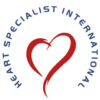Diabetes is a condition wherein insulin production in the body is inadequate, leading to an exponential increase in blood sugar levels. Diabetes can affect anyone at any age, and if not managed early on, can lead to further medical complications including heart diseases, nerve damage, and eye issues.
There are various types of diabetes known today, with the most common ones being Type 1 and Type 2. Type 1 diabetes can be described as an autoimmune condition wherein the body attacks the insulin-producing cells, hence resulting in an inadequate production of the hormone and in turn, an increase in blood sugar levels. It is usually observed in children and young adults, but could occur at any age.
Type 2 diabetes, which is the most common type of diabetes, is a condition wherein the body’s insulin-producing cells do not produce enough of the hormone, leading to an increase in blood sugar levels. It is often observed in adults, mainly due to lifestyle habits and environmental factors, but can occur to anyone at any age.

It is often characterized by symptoms that include:
- Increased thirst
- Dry mouth
- Frequent urination
- Fatigue
- Blurry vision
- Unexplained weight loss
- Numbness/tingling in the hands or legs
- Sores/cuts that heal slowly
- Frequent skin or vaginal yeast infections
Upon consultation and diagnosis, the doctor will help prescribe the best-suited treatment for your case. In very early phase of diabetes, your doctors will advise on lifestyle modification. This will involve altering your diet and switching to foods of lower glycemic index, regular cardiovascular exercise and weight loss. Medication may be required if such lifestyle intervention does not yield the desired results. There are many types of diabetic medication and your doctor will work with you to individualize your treatment.
FAQ
- What is glucose intolerance?
- Glucose intolerance is the grey zone between normal and diabetes. This is diagnosed by a fasting sugar (glucose) level between 6.1 to 6.9 mmol/L. The initial management is a two prongs strategy of exercise and diet to modify your lifestyle. Jogging, cycling, swimming are good aerobic exercises and help to lose weight too. You should consult a dietitian to improve your diet.
- I am in my late forties and my doctor told me I have diabetes. Does it mean I have to self-inject insulin regularly?
- No, there are many oral medications to improve glucose metabolism and control the diabetes. Over 80% of type 2 diabetic patients will not require insulin in their life-time.






